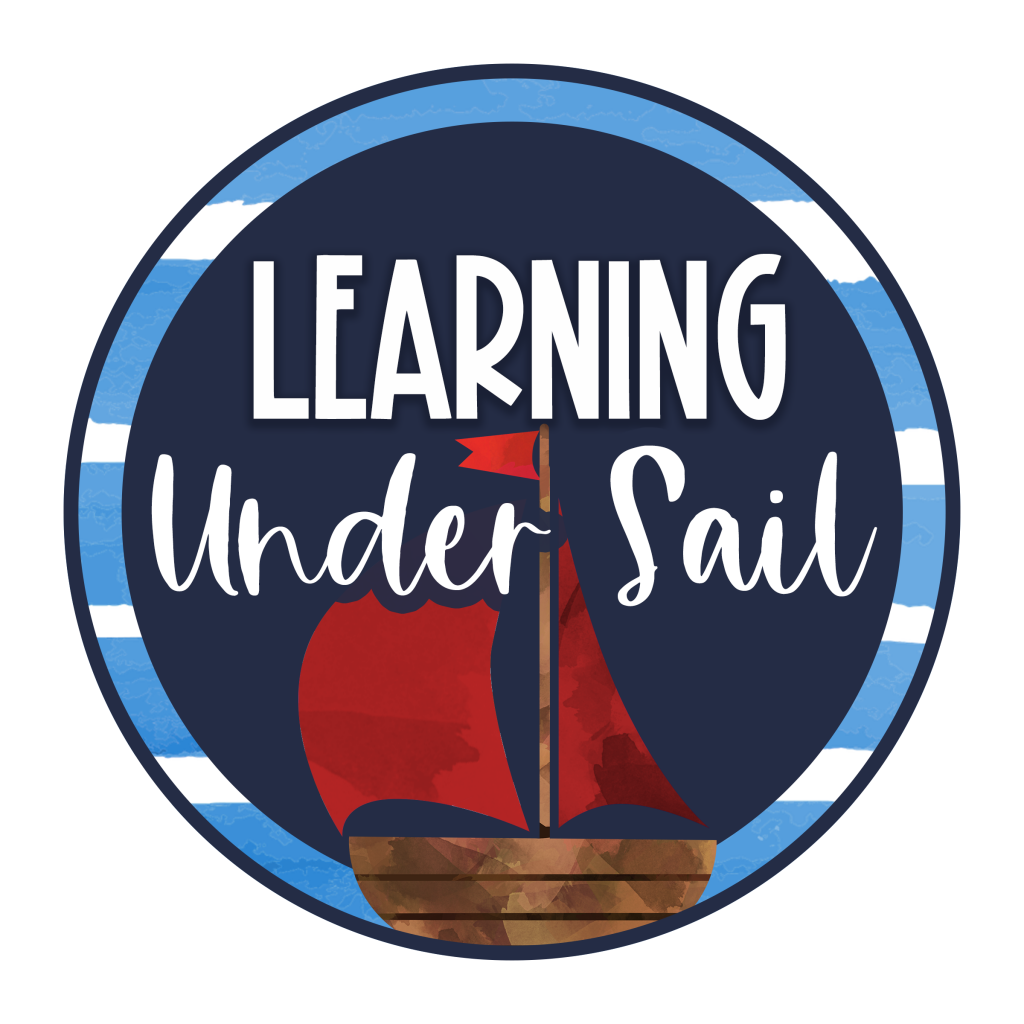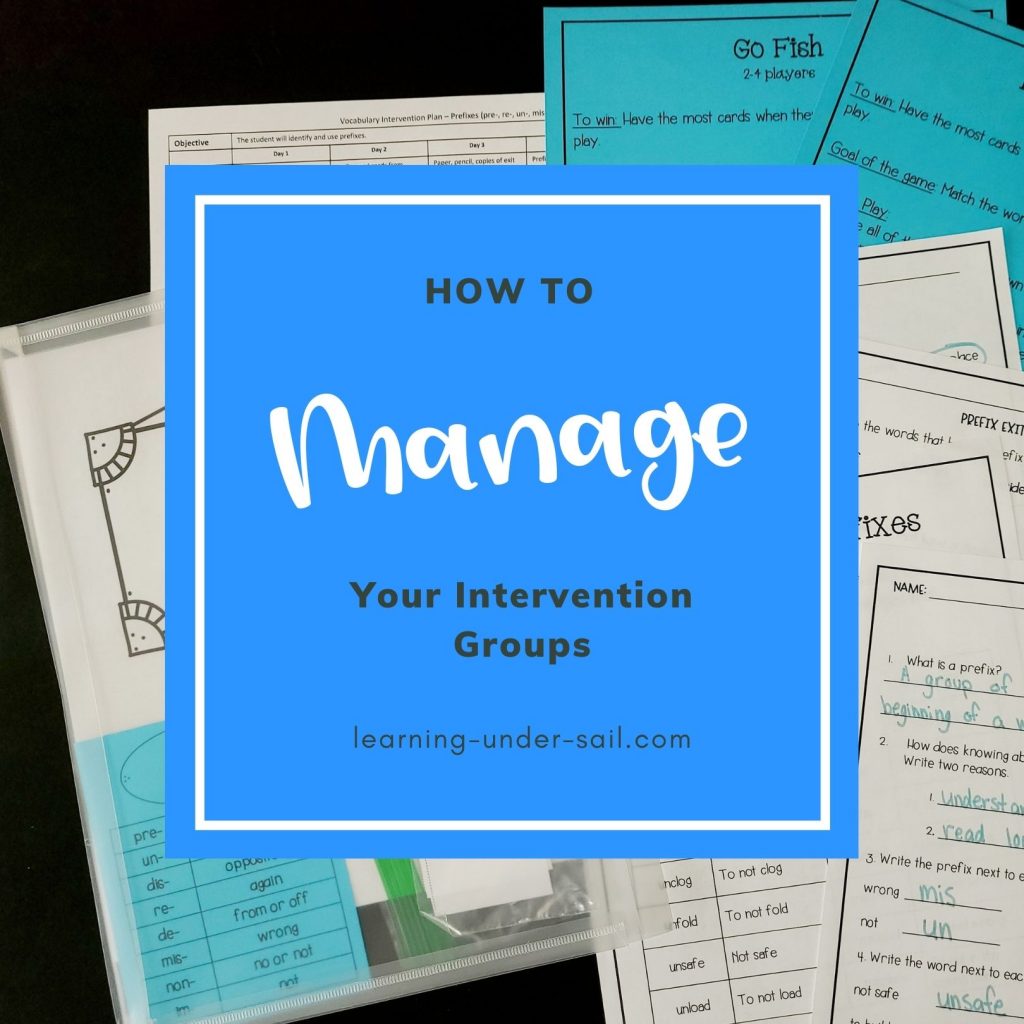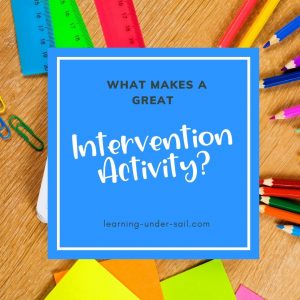There’s a lot to organize to get your intervention groups running smoothly. Three things to consider when you are planning your groups are materials management, student behavior, and time management.
Managing Materials and Activities
The materials and activities that you use in your groups can help you manage student behavior. Intervention time is often limited, so you don’t want to spend all of your time giving directions and gathering materials for your students. Here’s some tips for managing your materials and activities:
- Keep activities focused and specific so students can practice a skill meaningfully.
- Activities should be simple so students can focus on the skill they are learning, not on learning the process of completing an activity.
- Materials for one group should be in one place. This includes pencils, glue, scissors, copies, and your lesson plans. Use clear plastic envelopes or clear storage boxes.
Managing Student Behavior
Student behavior can make or break the effectiveness of your lesson. Use these tips to help manage student behavior and get the most out of your small group time:
- Build relationships with your students, teach expectations, routines, and procedures.
- Keep students engaged with activities and games. Intervention is a time for students to practice, not listen to another 20 minute lesson.
- If you plan to use games in your groups, teach all of your students how to play the games at the beginning of the year. For example, if you plan to play Prefix Go Fish!, teach the whole class to play Go Fish! with a deck of cards at the beginning of the year. This should cut down the time it takes you to introduce Prefix Go Fish! later in the year because the students will already know how to play the game.
- Consider that some students prefer to work alone rather than play games with a partner or work in small groups. When students are working in pairs, offer an independent option if possible.
- Hold students accountable for learning. This can be done verbally or written, but students should be using their time wisely to master the skill they are learning.
Managing Intervention Time
Intervention is most effective when done consistently. Make it a priority. Here’s some tips to help you manage your time:
- Intervention time should be built into your schedule. This could mean that there is a specific time already in your schedule by your school or you have to be a little creative and carve out 20-30 minutes from someplace. Find a time that works for your class and stick with it. Meet with your group(s) everyday and you will see results.
- Prepare five days of plans and materials and keep everything on one place. This way you don’t spend time hunting for copies and students aren’t hunting for a glue stick for 20 minutes.
- Keep student activities and teacher plans simple. Build a bank of activities that can be used to practice multiple skills. Graphic organizers, annotating text, and generic games are great examples of high student engagement and low teacher prep strategies.
Keep these tips in mind when planning and running your intervention groups and you will see your students learn!
What’s you biggest intervention challenge? Tell me about it in the comments below.










One Response